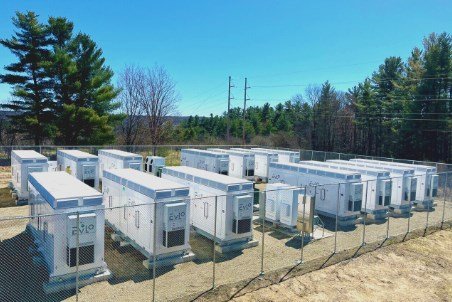
- May 28, 2024
How India Plans to Meet its 2030 Energy Goals with BESS?
“The transition to renewable energy is not just a technical challenge; it’s a social and economic imperative.”
Renewable energy can power our homes, our businesses, and our communities without polluting our air, our water, or our climate.
With ambitious goals to reach 500 GW of non-fossil fuel capacity by 2030, India has the potential to take the lead in renewable energy globally. In order to achieve this objective, the government is placing a strong emphasis on the use of battery energy storage systems (BESS) to speed up the switch from fossil fuels to clean energy sources.
Key Strategies to Achieve 2030 Energy Goals
The government has come up with the following key strategies to achieve 2030 goals:
- Solar Power: As of 20th Jan 2025, India’s total non-fossil fuel based energy capacity has reached 217.62 GW. The year 2024 saw a record-breaking 24.5 GW of solar capacity and 3.4 GW of wind capacity added, reflecting a more than twofold increase in solar installations and a 21% rise in wind installations compared to 2023. Building on this success, the government has set a new target to reach 500 GW of renewable energy by 2030.
- Battery Energy Storage Systems (BESS): The government has launched the Battery Energy Storage Systems (BESS) scheme, which aims to develop 4000 MWh of BESS projects by 2030-31. The government is promoting energy storage through various initiatives, including the National Energy Storage Mission. New Made in India BESS manufacturing companies, like Good Enough Energy, Fluence, BYD, etc., have come up with complete R&D, manufacturing, installation, and after-sales.
- Global Investment: India requires an investment of $160 billion per year till 2030 to meet 50% of its energy demands from renewable energy sources. The government is encouraging global investment in the renewable energy sector to achieve this goal.
Challenges and Opportunities in Achieving the 2030 Goals
While India is making significant progress in achieving its renewable energy targets, there are still several challenges that need to be addressed. These include funding gaps, supply chain issues, and the need for advanced renewable technologies.
However, these challenges also present opportunities for growth and innovation. India has the potential to become a global leader in renewable energy, and the government’s initiatives are creating a favourable environment for investment and innovation.
In Conclusion
India’s renewable energy targets and BESS initiatives are crucial to achieving its 2030 energy goals. With the government’s support and investment, India has the potential to become a global leader in renewable energy and reduce its carbon footprint.
